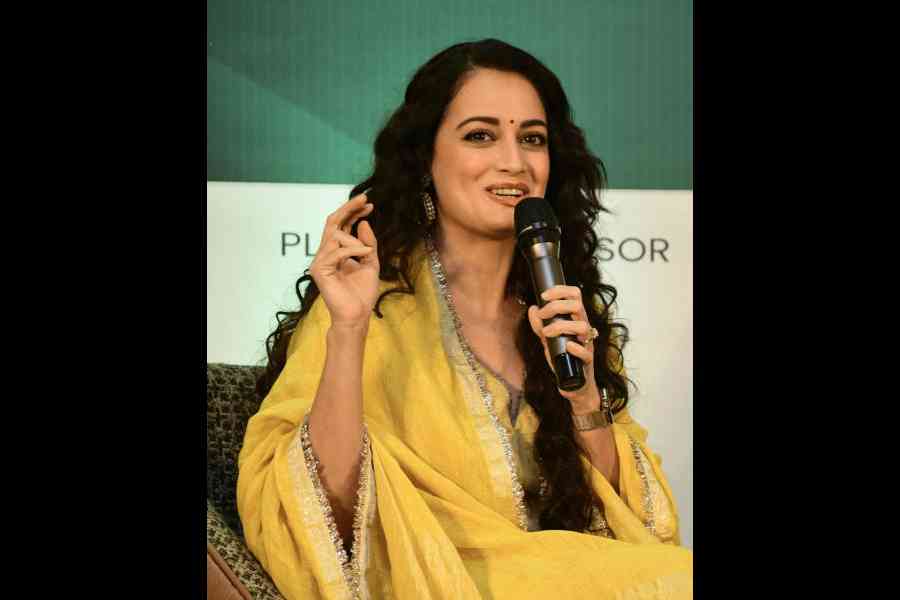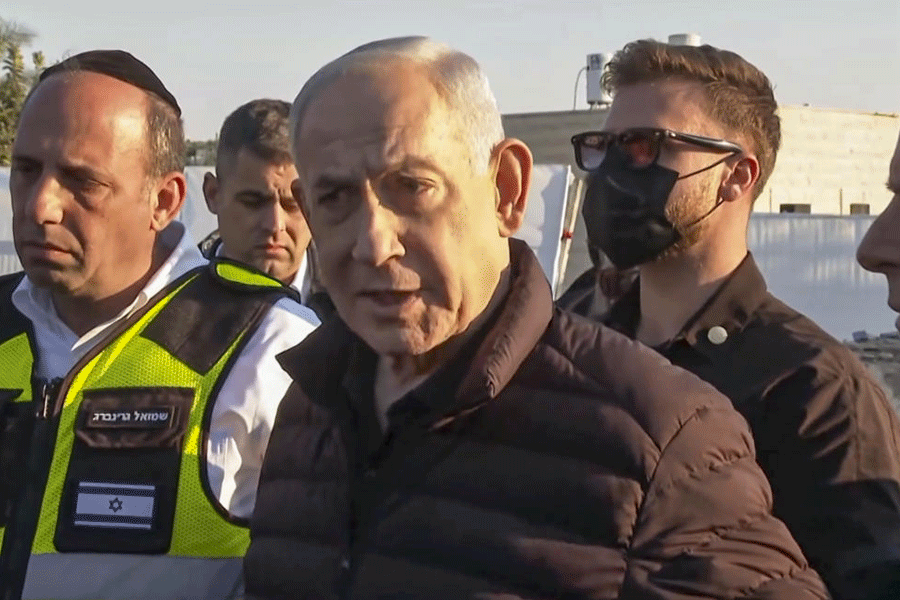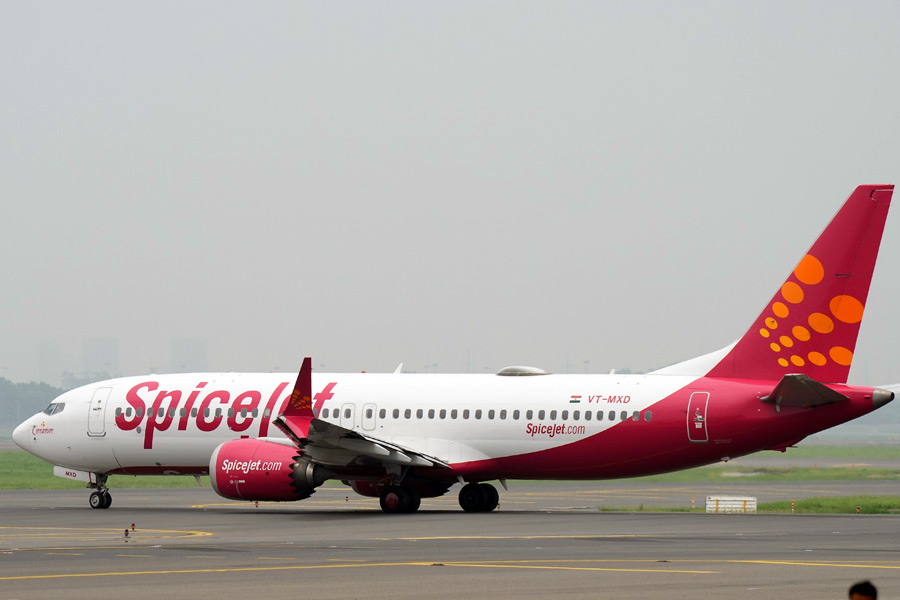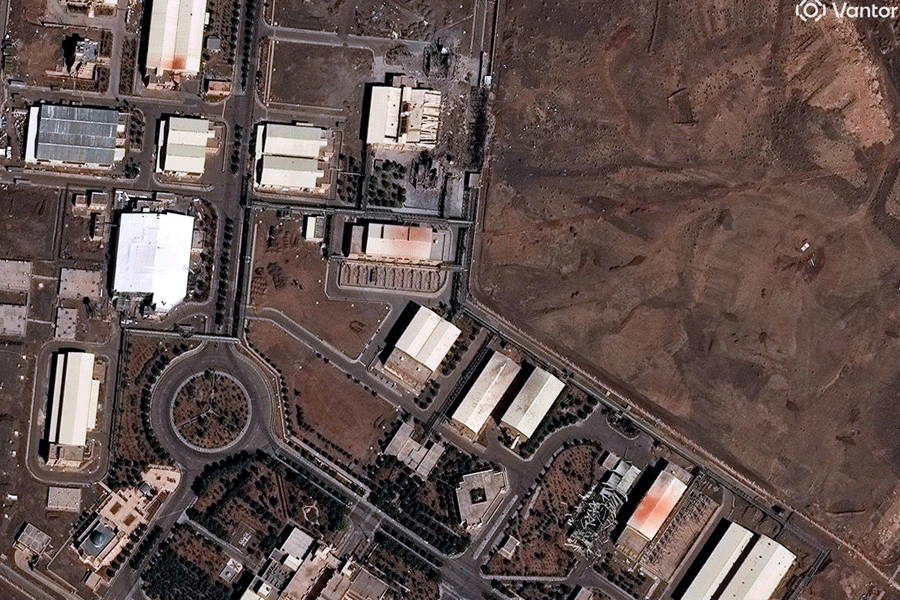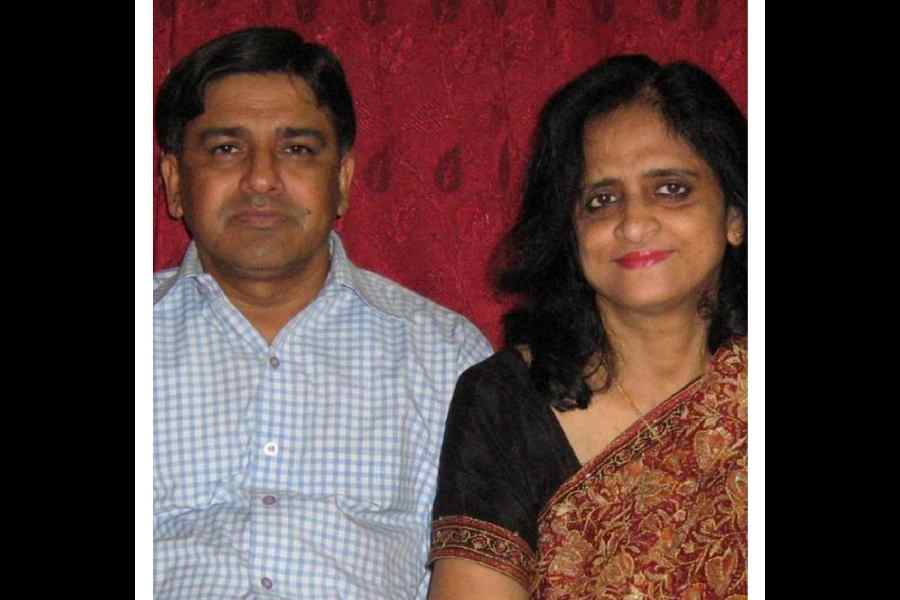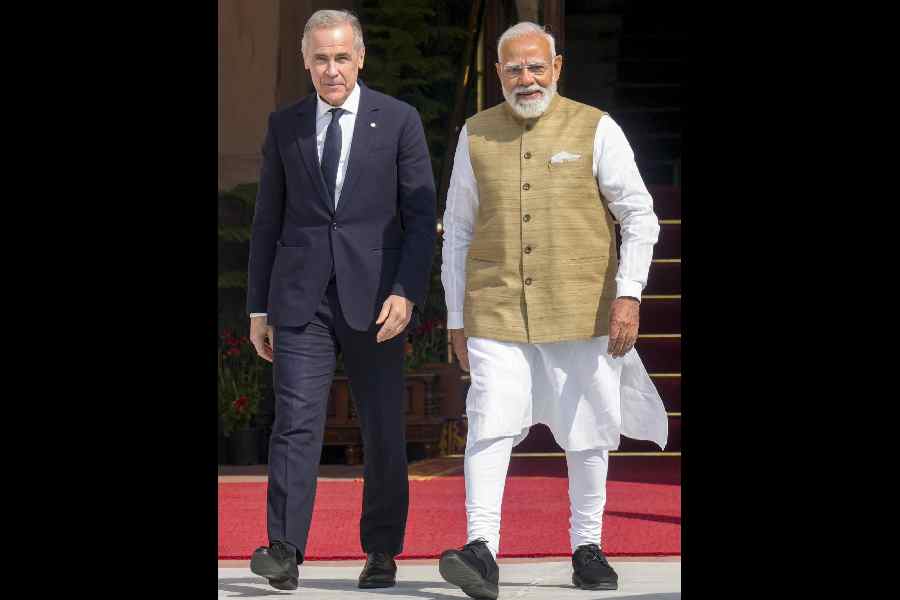YFLO Kolkata’s event ‘Lights, Camera, and Green Action’ at The Park hotel welcomed actress and environmental activist Dia Mirza as a speaker. Dia’s talk revealed to the audience how a childhood habit instilled in her by her parents ultimately inspired her journey as an environmental activist. She also took the audience on a journey through her remarkable achievements, from winning prestigious pageants at just 18 to breaking boundaries in the film industry as an actor and producer, and the journey of motherhood. Dia further emphasised on how environmental activism is woven into our daily lives, making her discussion not only relatable but also enlightening, engaging and inspirational for the audience.
CHILDHOOD REFLECTIONS
Reflecting on how her formative years shaped the woman she has become, Dia delved into her diverse heritage. She reminisced about her early childhood spent with her German father and Bengali mother, emphasising her father’s influence in nurturing her love for the outdoors. Dia also opened up about the profound effect of losing her father at a young age, and shared insights from her upbringing in Hyderabad. “Experiencing the loss of a parent is an incredibly tough reality for any child. My mother, a creative soul herself, was also greatly connected to nature. Many of my childhood memories revolve around planting with her... from ages nine to 17, my environment shifted significantly. My father was Muslim, and I was raised among passionate debaters and individuals deeply concerned with the world around them. It was incredible to be included in these discussions as a girl. I was not merely an observer; I actively participated... my school experience was equally remarkable, fostering fear-free learning,” Dia expressed.
CHASING DREAMS
In her talk, she recounted her journey, starting to work at the young age of 16. She entered the world of pageantry and earned the titles of Miss India Asia Pacific 2000 and Miss Asia Pacific International 2000 when she was 18. “At that time, I was in a relationship, and my parents had concerns about my life choices. I was quite rebellious and had already taken the step to work. Summer jobs were a rarity during my upbringing, and here I was, earning money, which was especially unusual for a girl from a protective Hyderabadi family. I began modelling and travelled as part of that journey. When I got the offer to join the Miss India competition, I immediately spoke with my mother, who was firmly against it. However, my dad intervened, supporting my participation. He believed that if anything could change my perspective on my relationship, it would be this experience... we had to be resourceful and creative, carefully saving our money to make things happen. It was truly a fascinating transformation in my life. I approached the contest not as a competitor, but more as a cheerleader. I was there to cheer everyone on, soak in every moment, and be grateful for the opportunity to participate. I believe it was that very mindset that carried me through the experience,” shared Dia.
CAREER AS AN ACTOR AND THE POWER OF ‘NO’
Reflecting on her diverse career, which began in acting and evolved into producing, she discussed the challenges of being typecast due to her appearance. “When I started taking on roles in mainstream films, I often felt undermined and underutilised. Stereotypes crept in, shaped by my skin tone and eye colour. There’s this bizarre notion that if you’re too beautiful, you can’t be portraying a strong, deeply rooted Indian woman. After two decades of navigating these boxes, I’ve managed to uphold my identity as an individual artiste, but only because I’ve fought for the chance to express more. Now, I’m seeing roles that challenge me like never before. This journey was both intentional and lengthy, filled with many rejections and moments of heartbreak. But by consciously refusing to allow myself to be misused, I’ve opened doors where my skills can shine. Discovering the power of ‘no’ was incredibly freeing for me,” Dia shared.
EMBARKING ON PRODUCTION
At just 26, Dia took the leap into film production, creating a welcoming space for women to develop their skills and explore their creativity in this industry. “If you want to create opportunities for yourself, you have to take the initiative — nobody is going to hand them to you. So, I took that step and produced my first film, Love Breakups Zindagi. It fills me with joy to see so many women stepping into production roles today. I even had the chance to produce a film featuring Vidya Balan that was shot entirely in Hyderabad. It was a heartfelt tribute to both my hometown and my amazing co-actor. It’s crucial for women to recognise that we can excel in roles traditionally dominated by men and to encourage others in the process.... I believe that a significant part of my legacy will be the films I have produced,” Dia shared.
MOTHERHOOD AND ME TIME
“I’ve always dreamed of becoming a mother. Now, with Samaira and Avyaan in such different stages of life, we find ourselves navigating the dynamics of a teenager and a toddler,” shared Dia. She further spoke about the challenges and excitement of having a teenage daughter and work-life balance. “I’m committed to becoming the best version of myself, and when I fall short some days, I’m learning to embrace that without being too hard on myself. I feel fortunate to be in a position where I can choose my work commitments, allowing me to carve out time for my children. While many women must juggle external care and family support, I’ve streamlined my responsibilities to prioritise my kids. In our family, we believe in a simple rule: Our children are only left with immediate family members. So, between my husband, my mother, and myself, there’s always someone dedicated to being with the kids, especially the little one. Mom guilt is undoubtedly real. While my husband travels for work for much of the month, I find myself feeling guilty after just 24 hours away,” she said.
CAUSES THAT MATTER
Being an eco investor and UNEP’s Goodwill ambassador, Dia often speaks out on environmental causes that she cares about. She uses her Instagram platform to actively work on various causes and also make people aware. She spoke about how cancer is related to polluted environment, contaminated groundwater and tainted food. She also made the guests aware of the tourism and agricultural industry that prioritises profit over health and how microplastics are affecting infants through their mother’s breastfeeding. “We can’t hope for progress, equality, or peace without a healthy world to support us. It begins with clean air,” she said, emphasising on everyday choices.
“Today, we find microplastics in mother’s breast milk and even in the bloodstream of infants. The womb, which should be a sanctuary, is now tainted. It is going to take time for us to unlearn harmful behaviours, but I truly believe that if people are informed better, they will act better. Every action matters. Commit to refusing single-use plastic. Make it a habit to segregate your waste into natural wet waste and dry waste. Nowadays, many companies and vendors offer doorstep collection for materials like paper, metal, and various forms of e-waste. Don’t hesitate to take advantage of these services. If you’re celebrating an occasion like a birthday, consider making it about experiences rather than just consumerism. This approach can create lasting memories without contributing to waste. Support organisations dedicated to protecting forests and wildlife, whether it’s through your time or financial contributions. These organisations often struggle for attention, as most corporate social responsibility efforts focus on education and women’s rights. Remember, everything we need comes from nature, and investing in conservation is crucial... focus on eating seasonal, local, and natural foods, it’s essential to understand where your vegetables and other foods come from. Ensure they are free from chemicals, fertilisers, and pesticides. It’s also important to maintain a sugar-free diet whenever possible. There are countless ways to support healing, recovery, and cancer prevention. However, we need to consider how to shield ourselves from other risks, such as polluted water and air,” said Dia.

